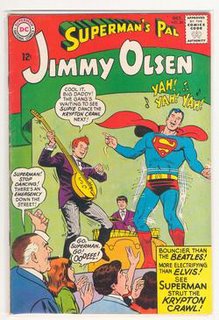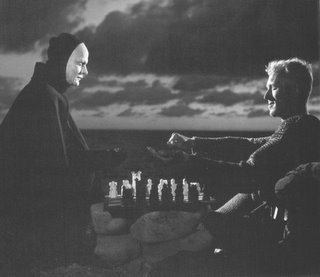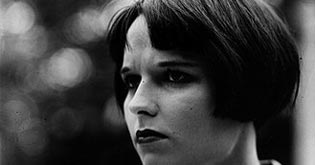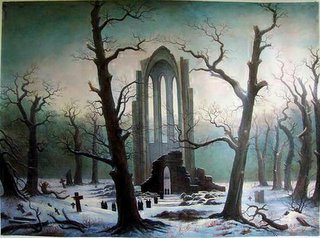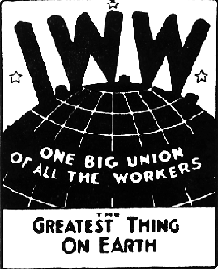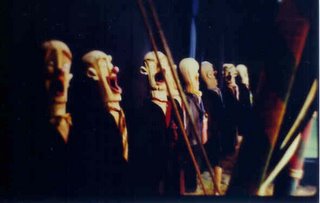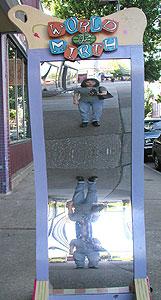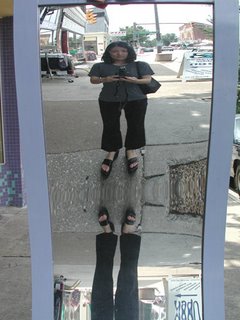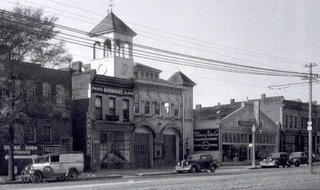
New Plays For The USA
Greetings all, back again. I hope some of my billion-eyed audience has the opportunity to visit the Firehouse (pictured above, in this World War II era image--then Fire Station #10 lost the bell tower in the 1950s).
Through the happy effects of happenstance works for the Firehouse Theatre Project's Fourth Annual Festival of New American Plays are set in institutions, one a prison and the other a university. Their themes pertain to the value of authenticity and self-expression, and of denial and delusion, and the varying kinds of love. They each involve characters who are rebels, criminals--and crazy. Both the playwrights are from California.
The cast for Tiger By The Tail, written by Frawley Becker, is Foster Soloman (recognizable around the Richmond region as the Comcast community conversation guy who hosts the PSA interstitials), who delivers a warmth and humanity to his portrayal of L.A. therapist Jerry Arnold; Ben Hartland--who reminds me a younger version of Chandler Bing, if he'd gotten sent to a Florida prison; David Boren is powerful as The Criminal; Kelly, a bruitish guard is Rick Reinhardt, Kent Skidmore is Peter Gordon, who is the therapist's therapist; Slocum, another slimy guard is portrayed by Jeremy Wade; Kaye Weinstein Gary is Miriam, a commuity volunteer and the expressive narrator--and in staged readings, setting the proper tone is important-- is Stephanie Ackerman.
The cast for Last Semester, by David Starkey, is headed by veteran Hutch Hutchinson as the irascible Dr. Schilling; yours truly plays academic hatchet man Dean Evans; the luminous Amy Sproul is the idealistic Allison; Mark Caudle portays the brooding Miguel Salazar; Raylene, a no-nonsense gal from Beaumont, Texas, is given voice and spirit by Laura Khatcheressian, who doubles as Schilling's estranged daughter Carolyn; the would-by riot grrrl Portia is Natalie Norville; David Boren appears here as the difficult Danny and the narrator is Robhye Proctor.
Don't forget, either, an important date: Saturday, February 11, which is the Firehouse's Hearts On Fire event. For those who with to add their support to the Firehouse mission, we'll have a catered repast--including an ice sculpture--cabaret-style entertainment; live jazz; dancing; an art auction with works from Bill Fisher, Kathryn Henry, Diego Sanchez, Andy Bality, and Amie Oliver and other prominent regional artists; a wine auction; a raffle for many wonderful prizes--and a free martini bar. And even Mayor L. Douglas Wilder will be there. The event is $100 a person, and theatrical black tie is required. Tickets are going fast, so don't dawdle and delay, and, again, if my faint plea makes to the eyes of those who are guardians of vast sums of money, remember, we are a non-profit institution.
Hope to see you at the Firehouse.
More later.
